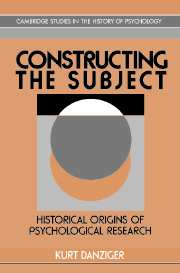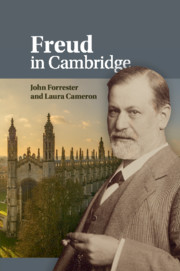Measuring Minds
This book explores the origins of the American intelligence testing movement. It follows the life and work of Henry Herbert Goddard, America's first intelligence tester and author of the most popular American eugenics tract, The Kallikak Family. The book traces the controversies surrounding Goddard's efforts to bring Alfred Binet's tests of intelligence from France to America and to introduce them into the basic institutions of American life - from hospitals to classrooms to courtrooms. It shows how testers used their findings to address the most pressing social and political questions of their day, including poverty, crime, prostitution, alcoholism, immigration restriction, and military preparedness. It also explores the broader legacies of the testing movement by showing how Goddard's ideas helped to reshape the very meaning of mental retardation, special education, clinical psychology, and the 'normal' mind in ways that would be felt for the rest of the century.
- The first full study of the early American intelligence testing movement and all the controversies it inspired
- The first study exploring the ways that intelligence testing transformed the very meaning of mental retardation, special education, clinical psychology and the 'normal' mind
- The first biography of Herbert Henry Goddard, America's first intelligence tester
Reviews & endorsements
"...[an] eminently fair-minded study...The resulting book is at once an illuminating biography that makes Goddard an understandable if not always laudable human being, and an instructive social history of a major episode in the development of American psychology." Contemporary Psychology
"...not only fascinating, but also essential for historians, psychologists, educators, and anyone interested in issues regarding the measurement of intelligence. All levels." Choice
"The high standard of combined scholarship and readibility in the Cambridge Studies in the History of Psychology is certainly sustained in this work, the ninth in the series." Journal of the History of the Behavioral Sciences
"...Leila Zenderland's judiciously rendered presentation of Goddard and his context is one that is well worth consideration by historians of science, for her detailed study challenges many common generalizations about this area of early twentieth-century scientific activity....her study demonstrates that the curious cultural foundations that have supported and intense interest in what constitutes the `normal' American mind over the last several generations are worthy of greater attention." Katherine Pandora, Isis
"This is an exceptionally will researched and written book...The book is filled with novel and insightful ideas that bring us much closer to appreciating the many forces that shaped both this highly interesting man and how his attributes fit so well to help create the nascent field of clinical psychology as a mainstream profession...it is highly recommended for any psychologist of sociologist interested in an exceptionally well-researched and thought out historical study." Perceptual and Motor Skills
"Measuring Minds provides a detailed treatment of the life and work of Henry Herbert Goddard...The book is thoroughly documented and well written." The Jrnl of American History
Product details
April 2001Paperback
9780521003636
478 pages
228 × 153 × 30 mm
0.65kg
Available
Table of Contents
- Introduction: motives, meanings, and contexts
- 1. Spirit and science: faith, healing, and mission
- 2. 'A little child shall lead them': educational evangelism and child study
- 3. 'Psychological work among the feeble-minded': the medical meaning of 'mental deficiency'
- 4. Psychological work in the schools: the statistical meaning of 'subnormality'
- 5. Causes and consequences: the Kallikak family as eugenic parable
- 6. The biology and sociology of 'prevention': defectives, dependents, and delinquents
- 7. Psychological work and the state: reformers, professionals, and the public
- 8. Psychological work and the nation: the political meaning of intelligence
- 9. Leaving Vineland: popularity, notoriety, and a place in history
- Epilogue: psychological legacies, historical lessons, and luck.








